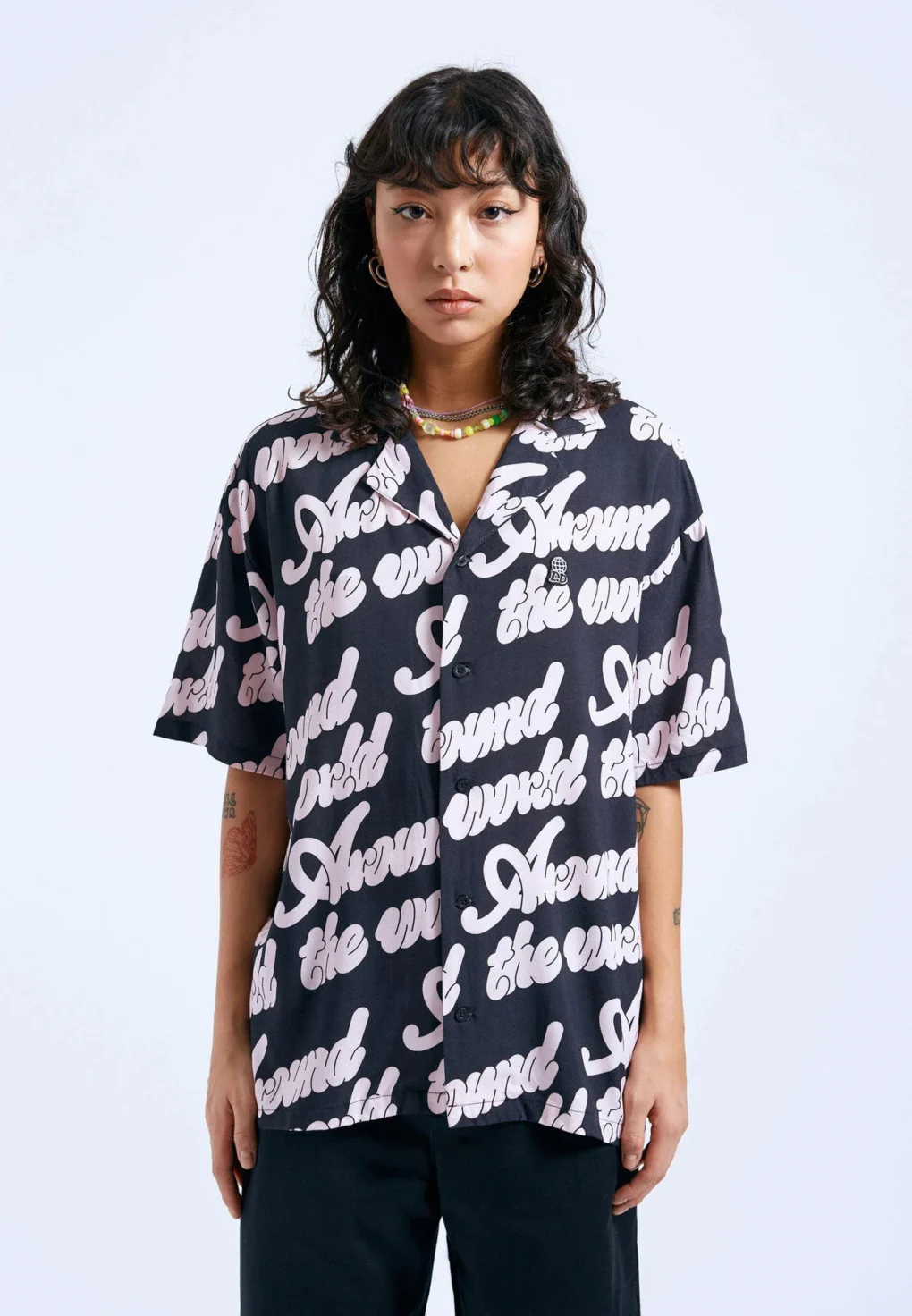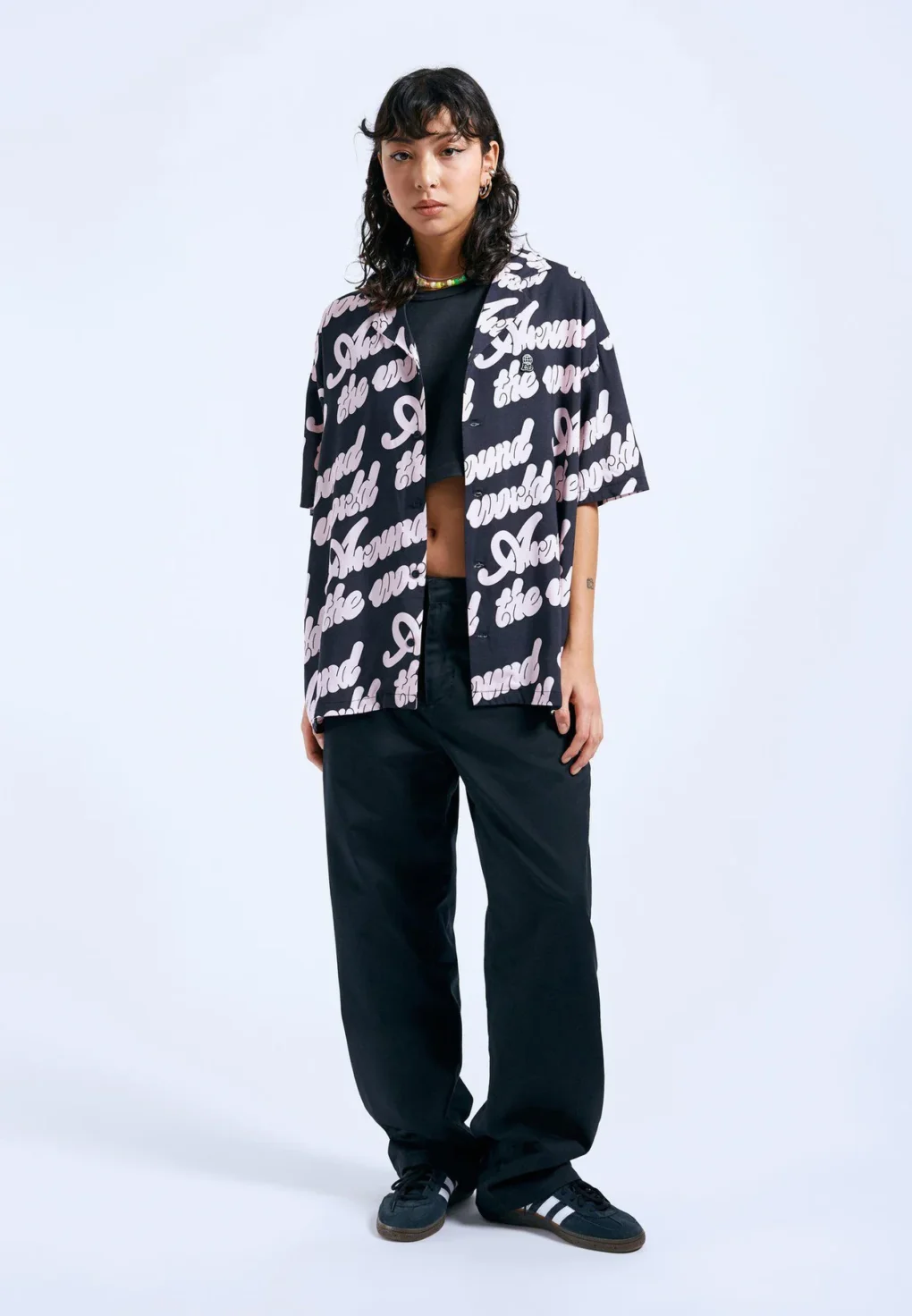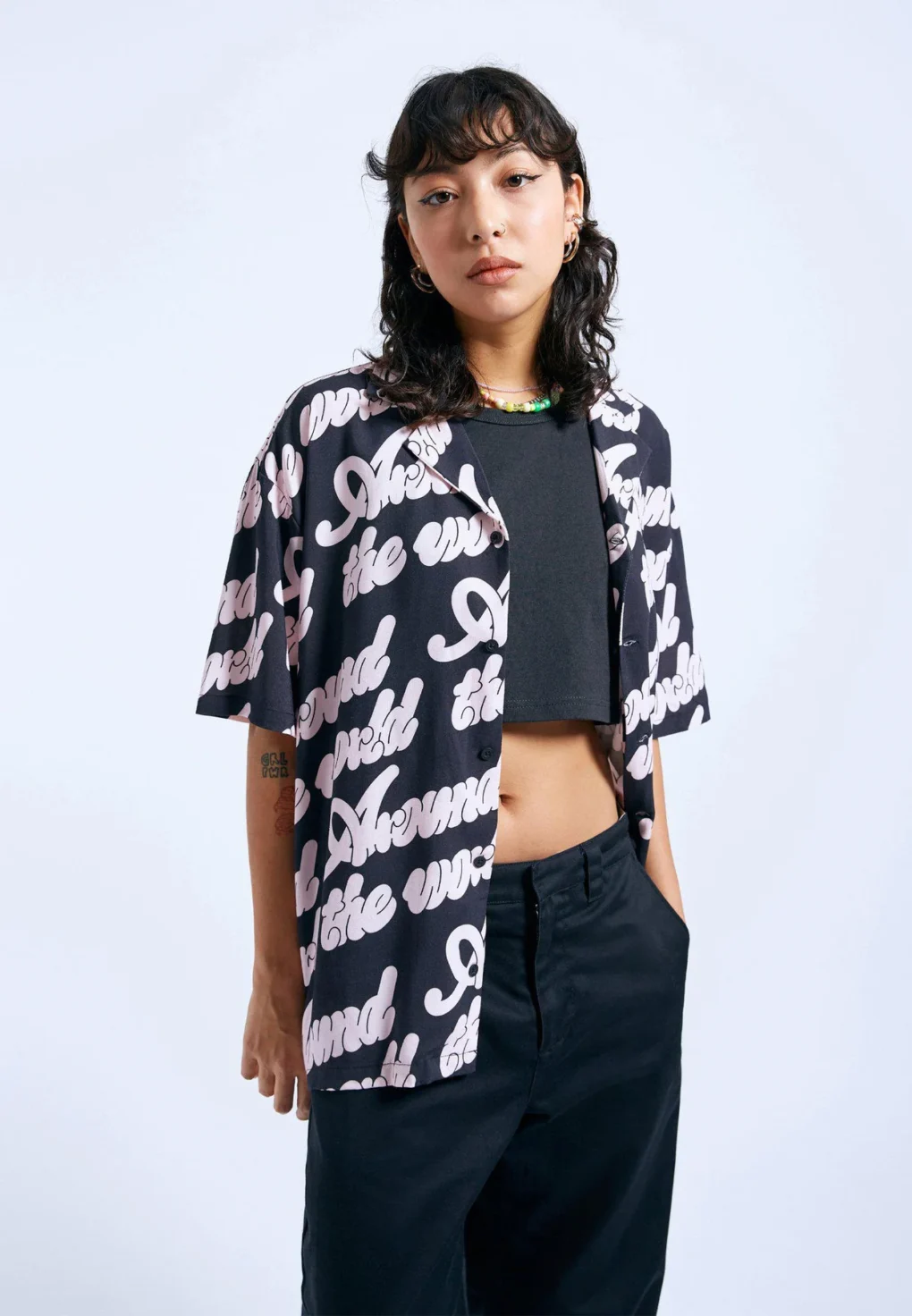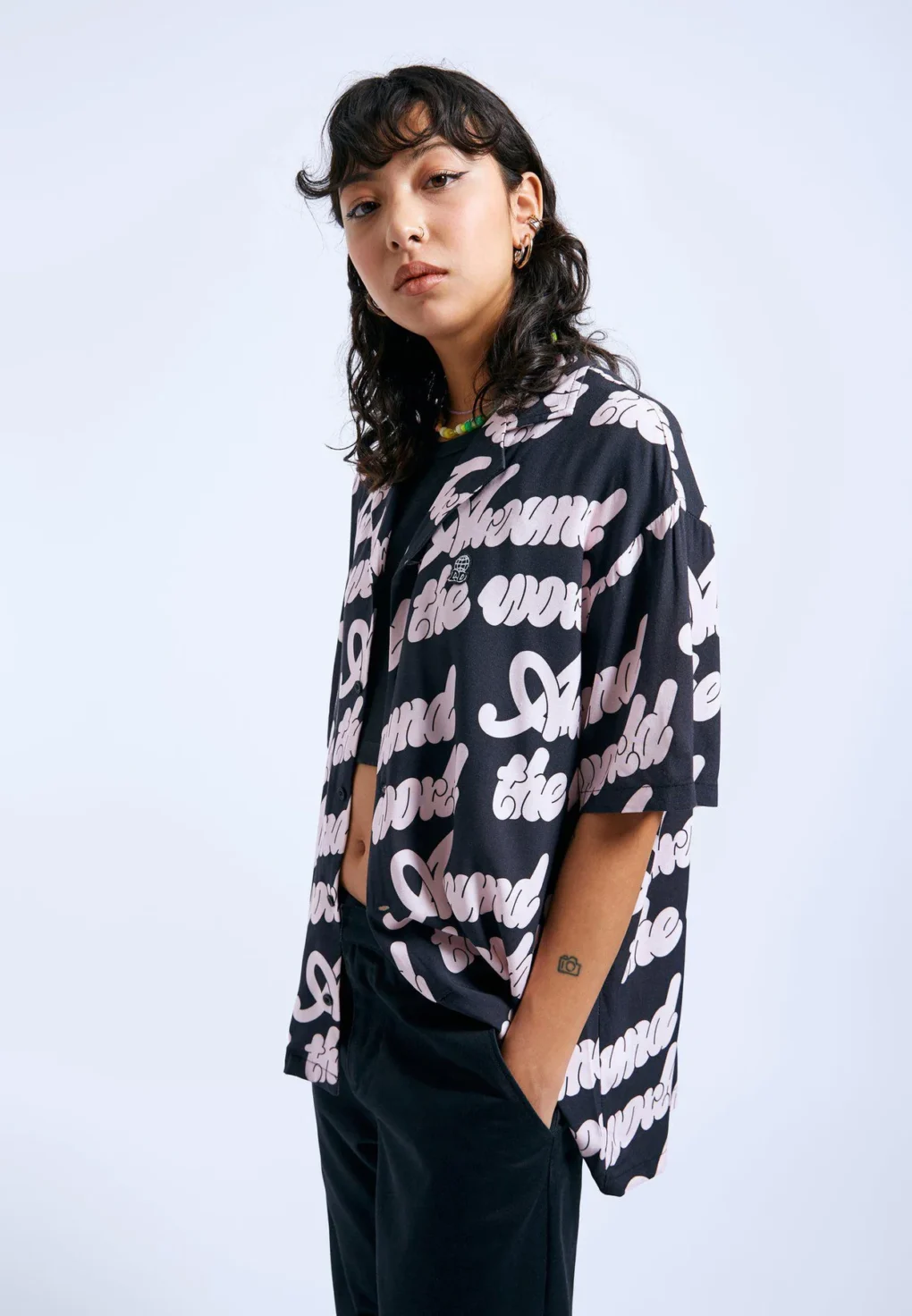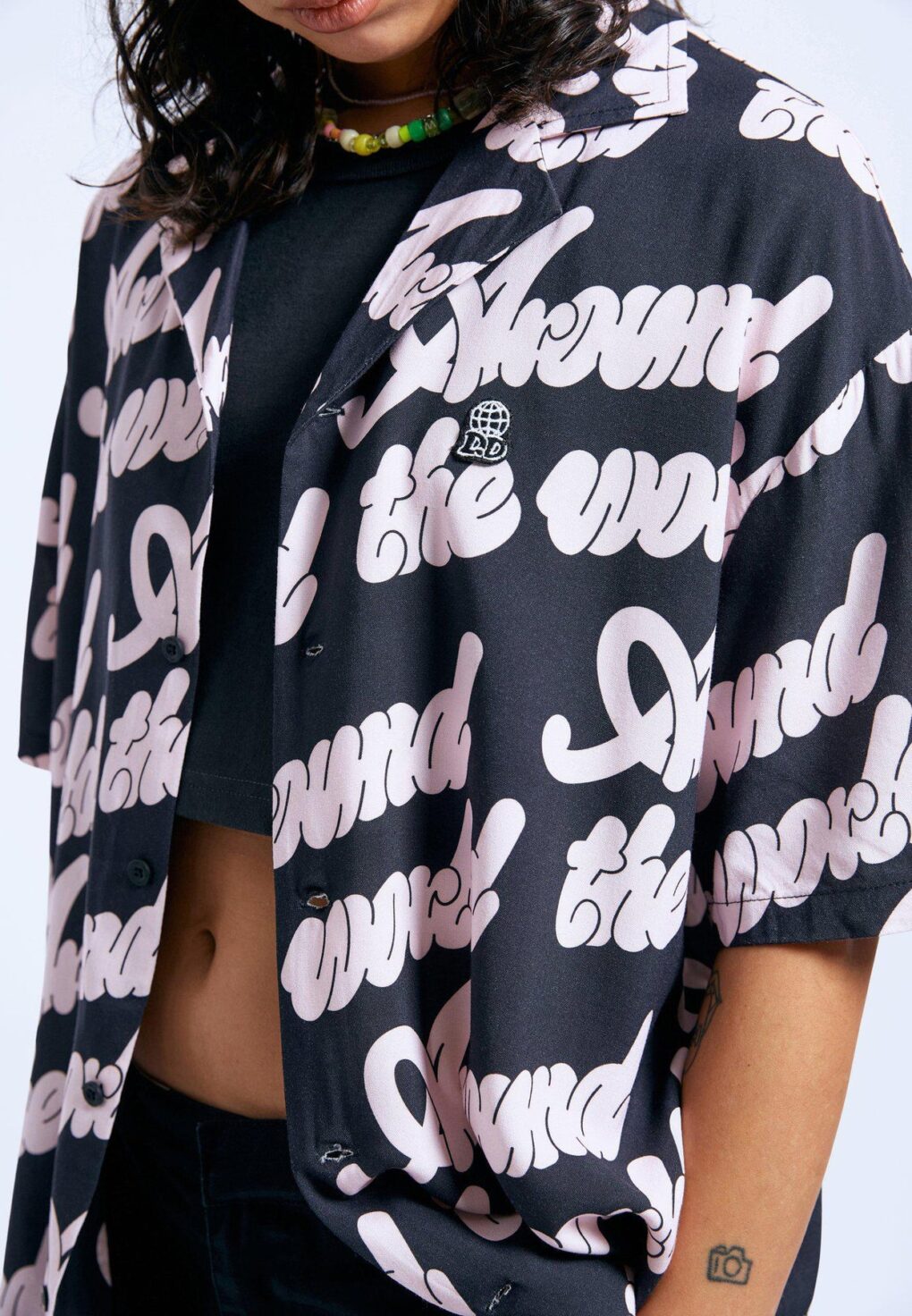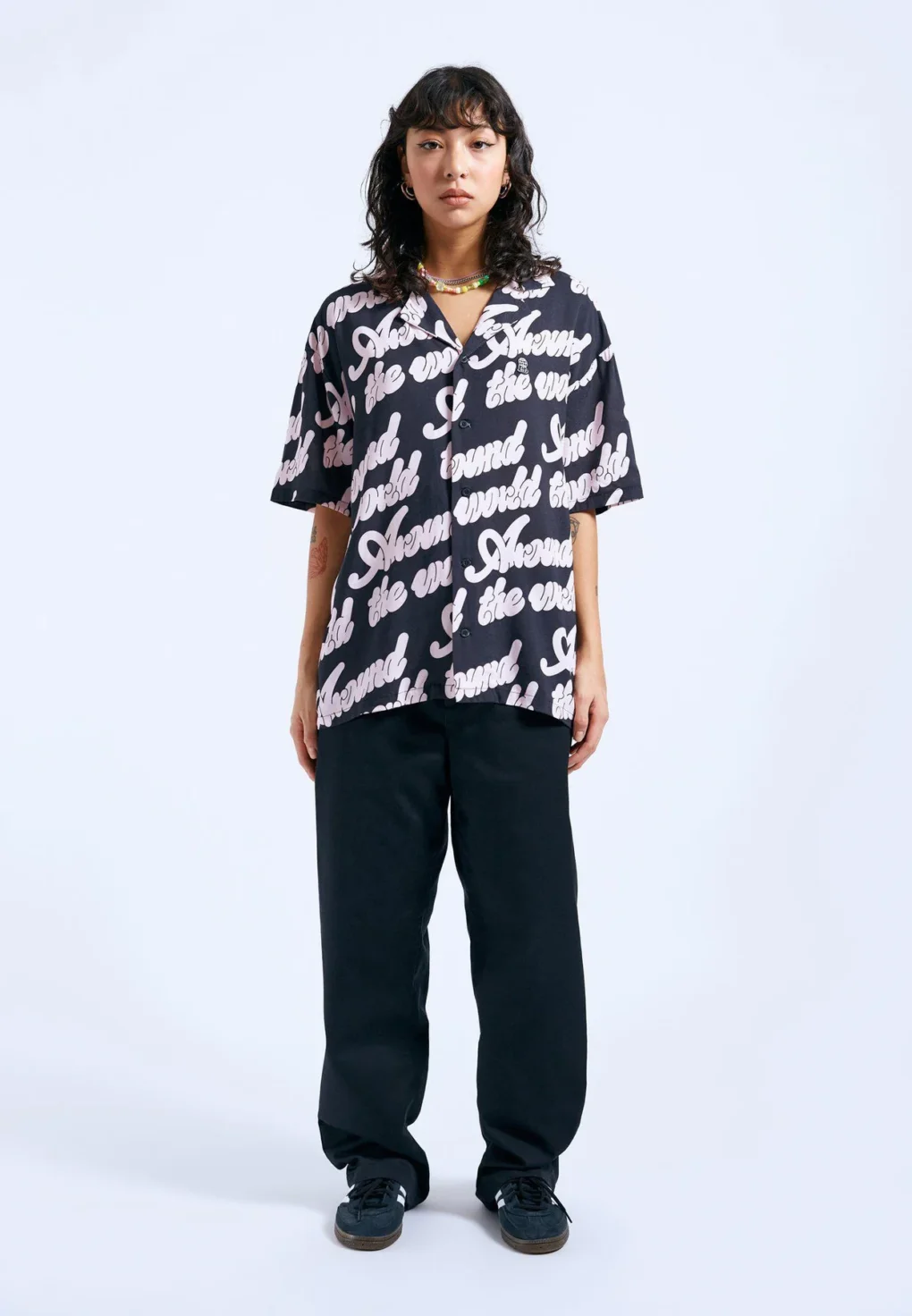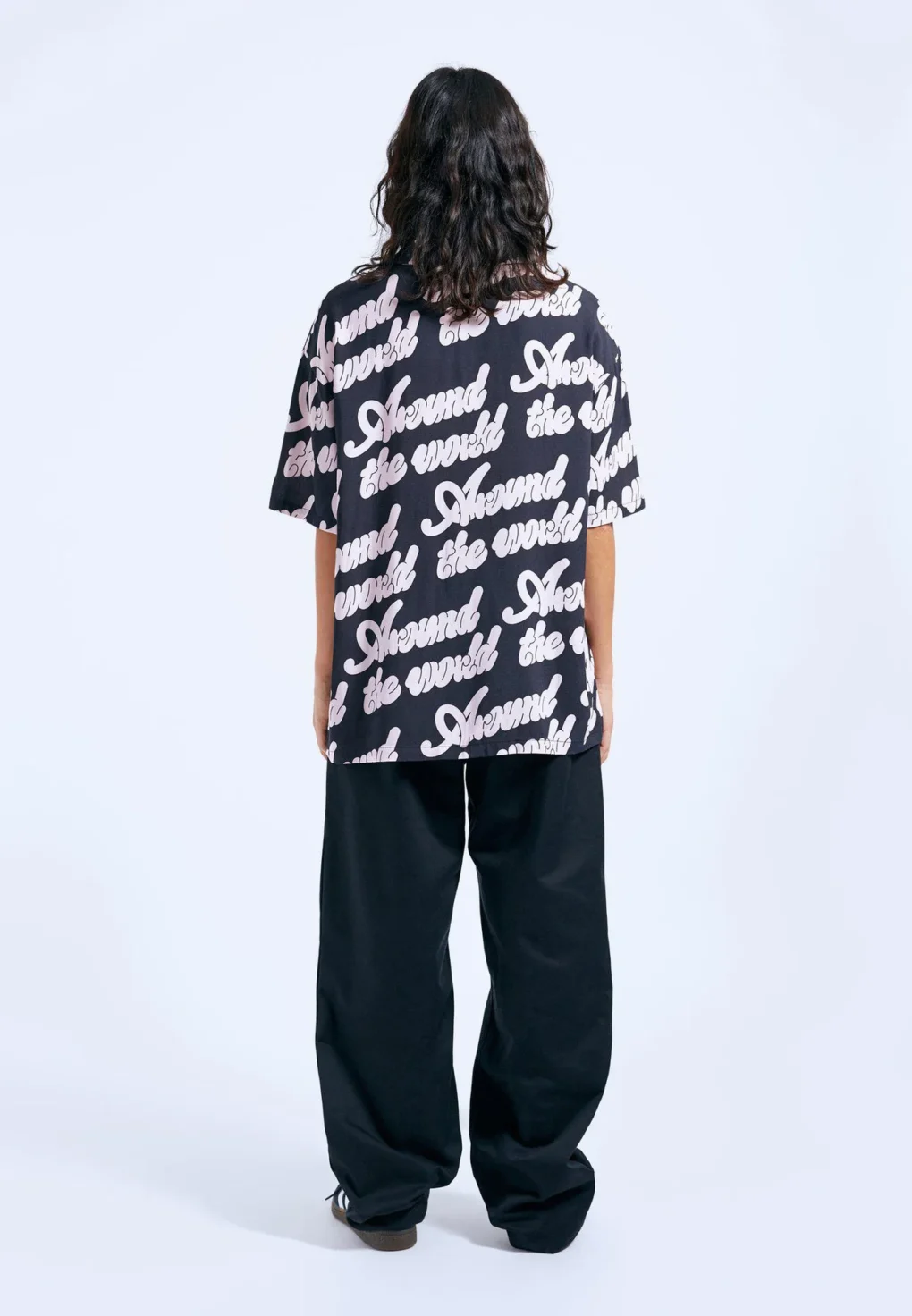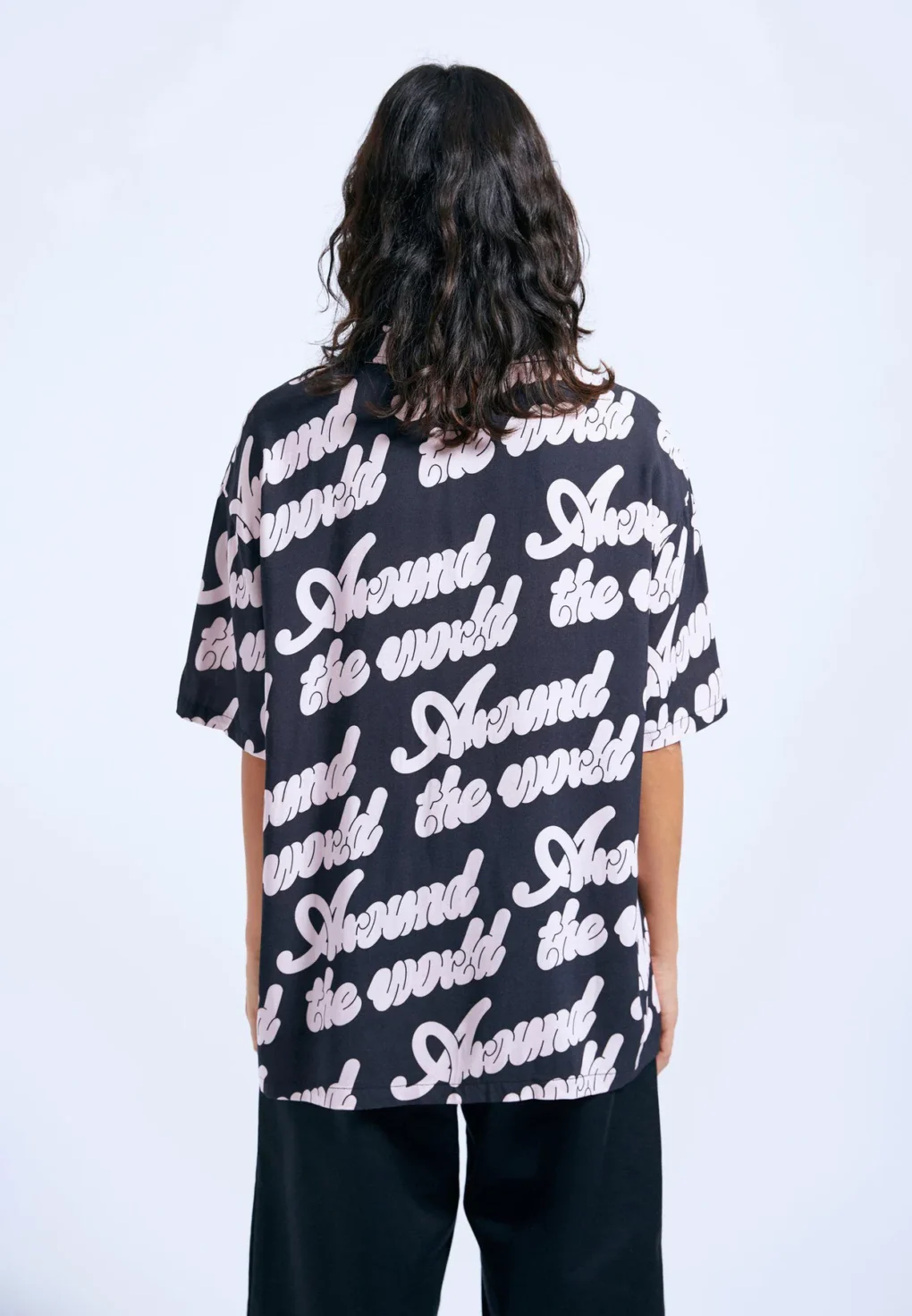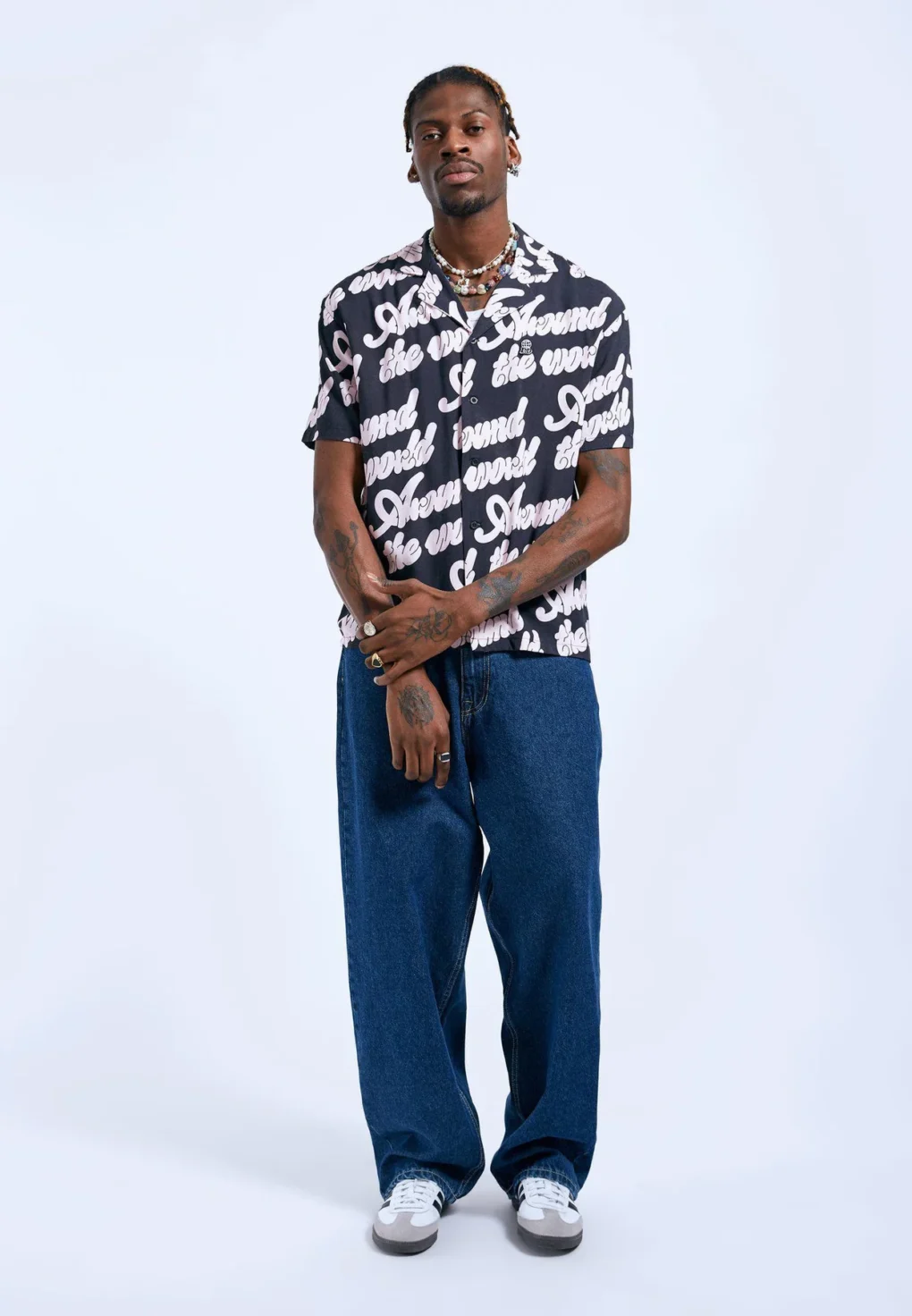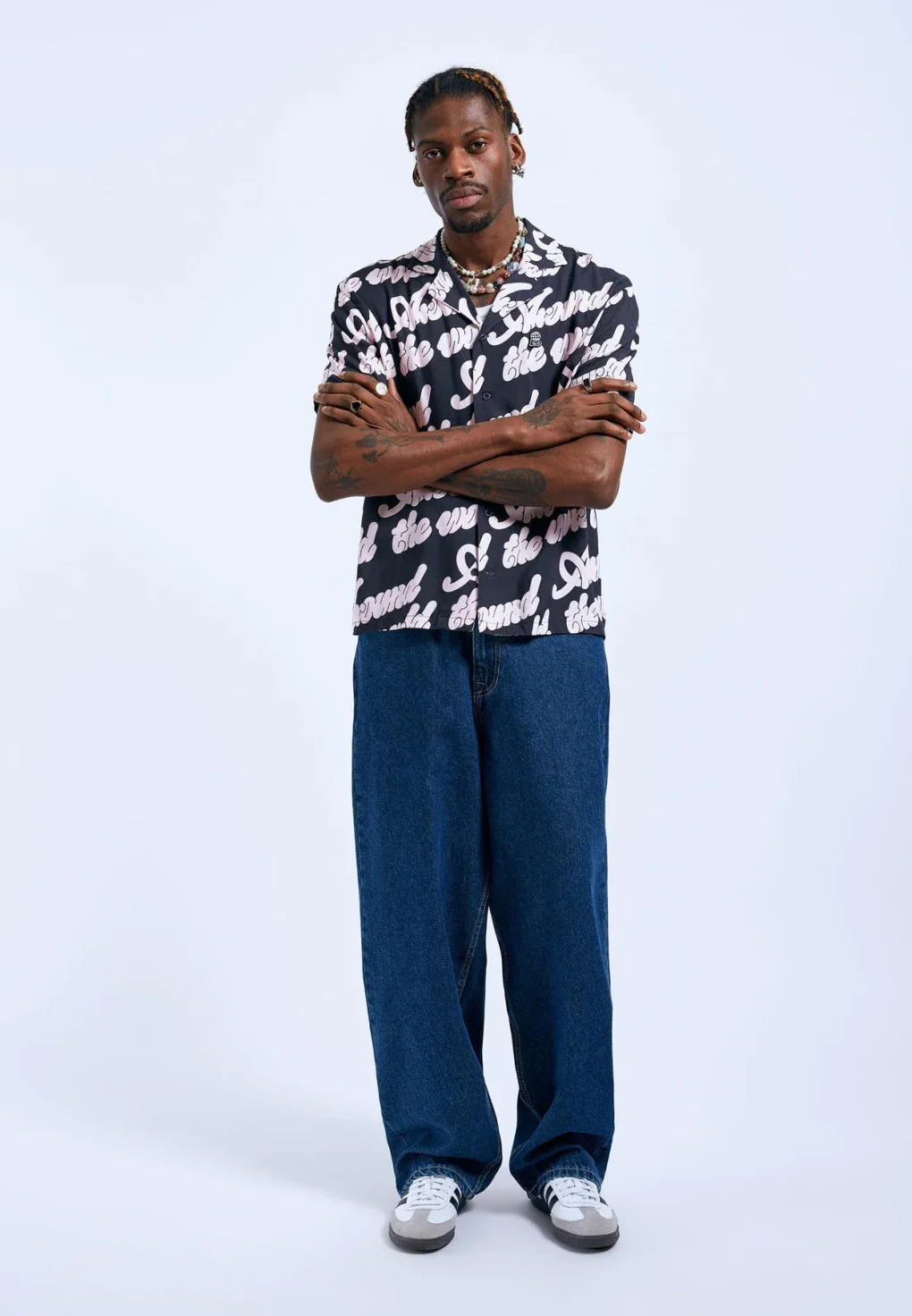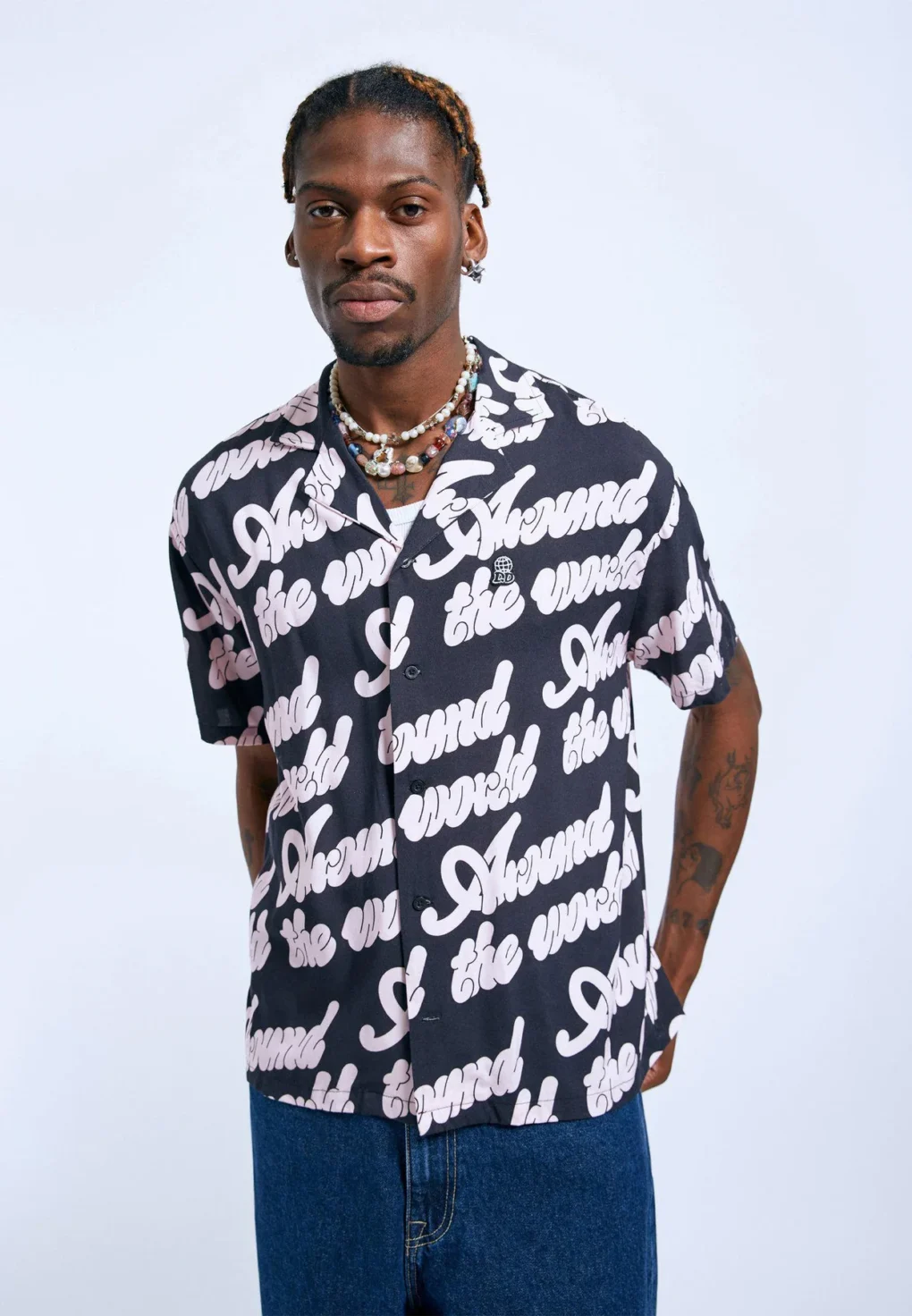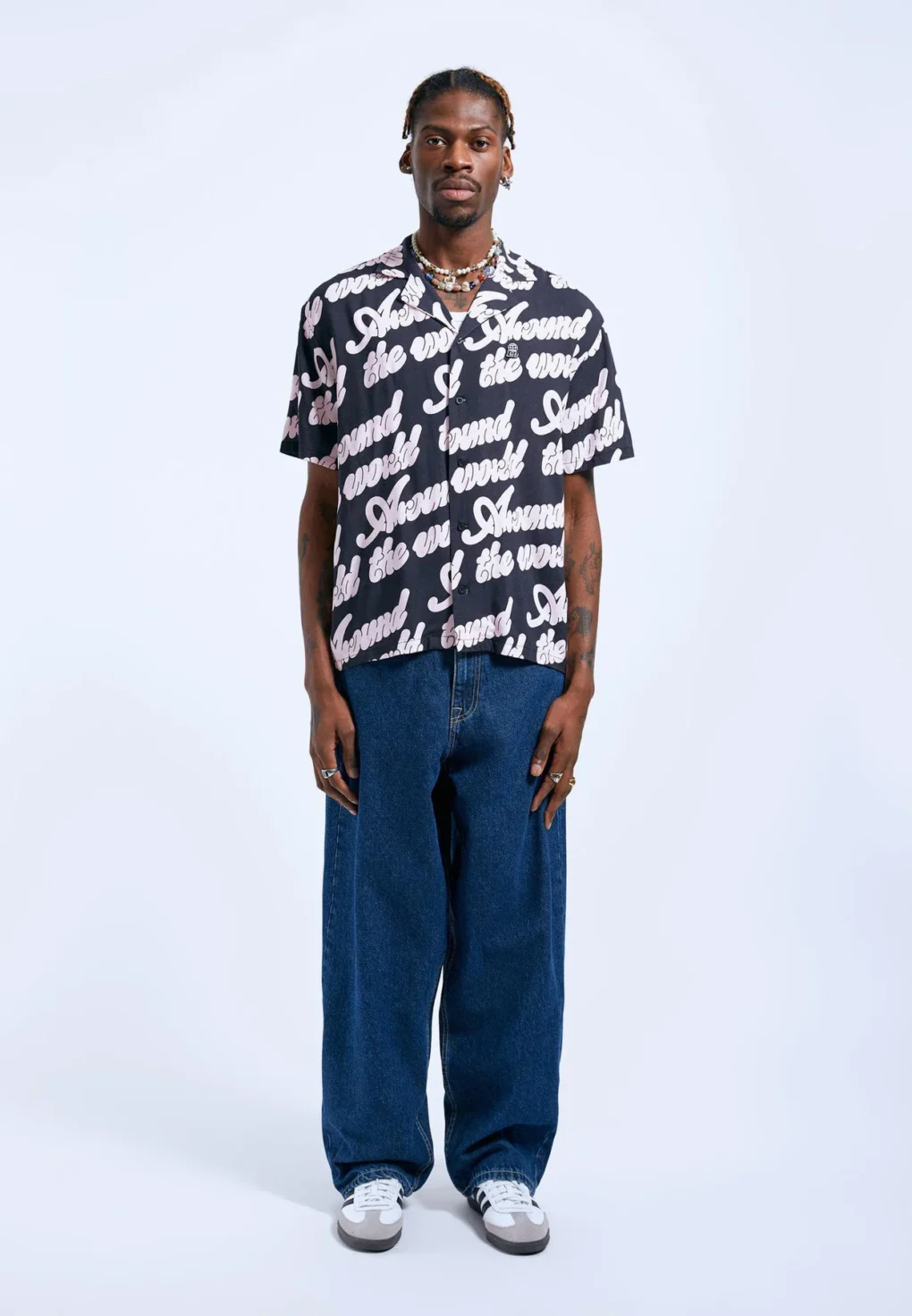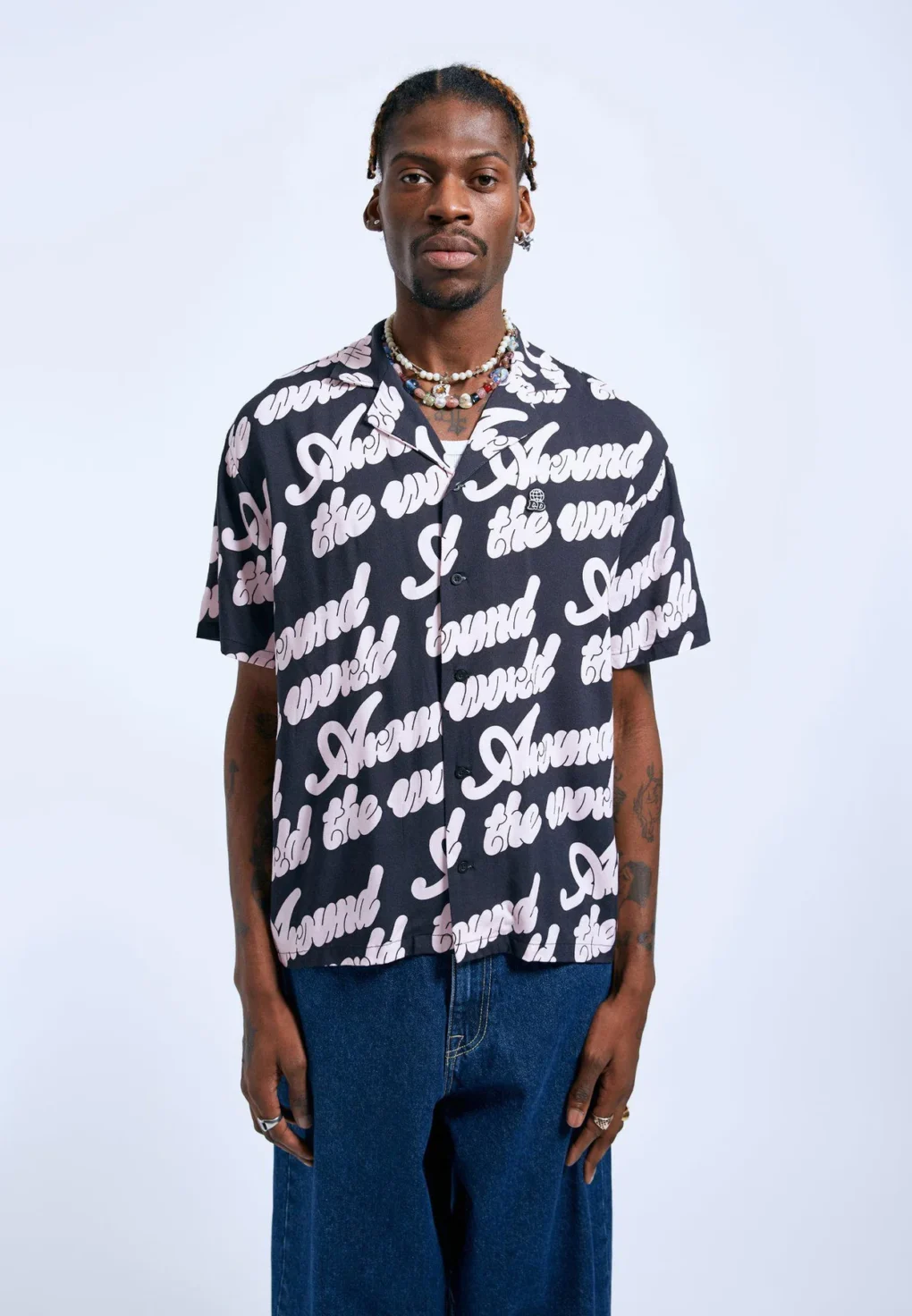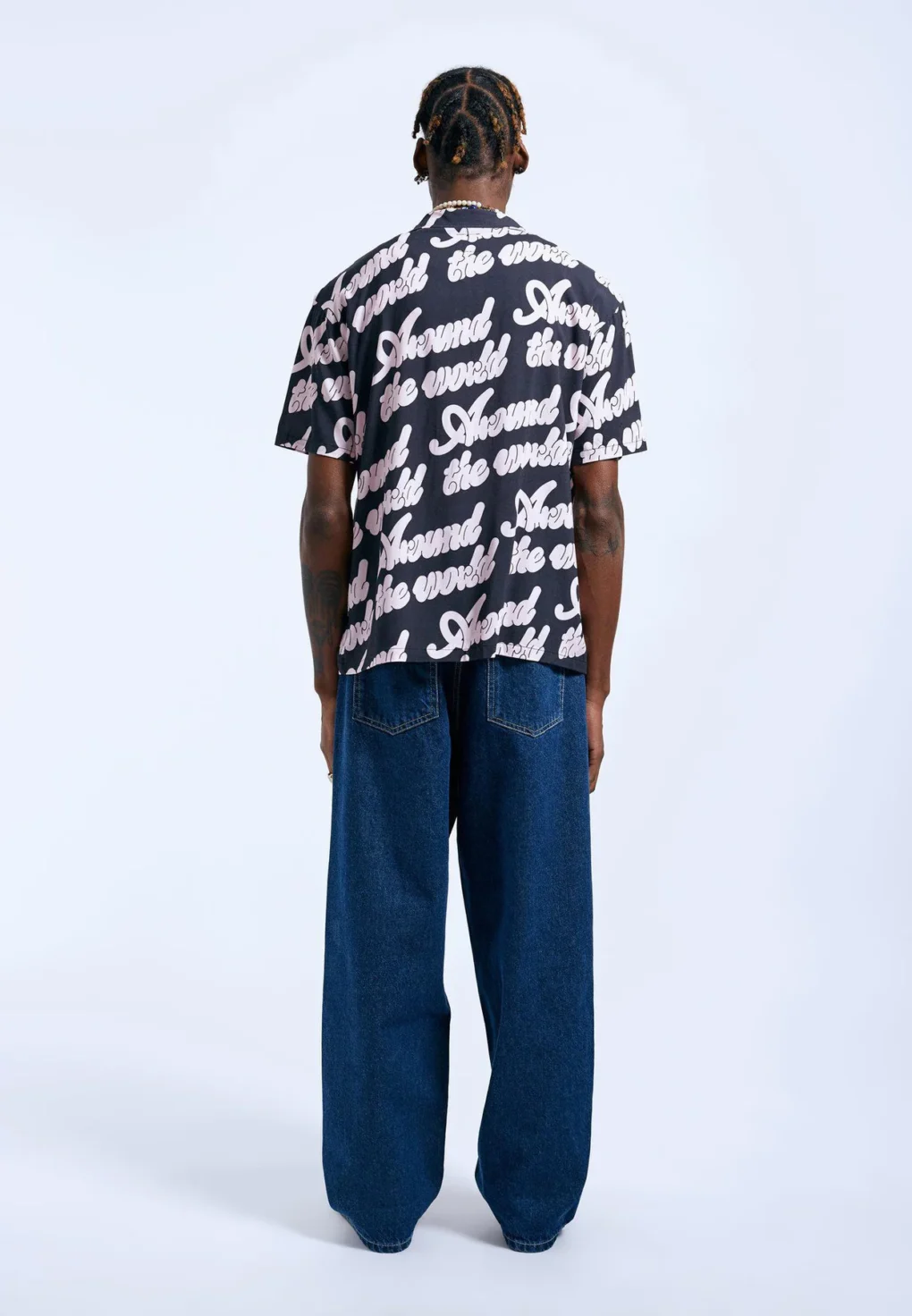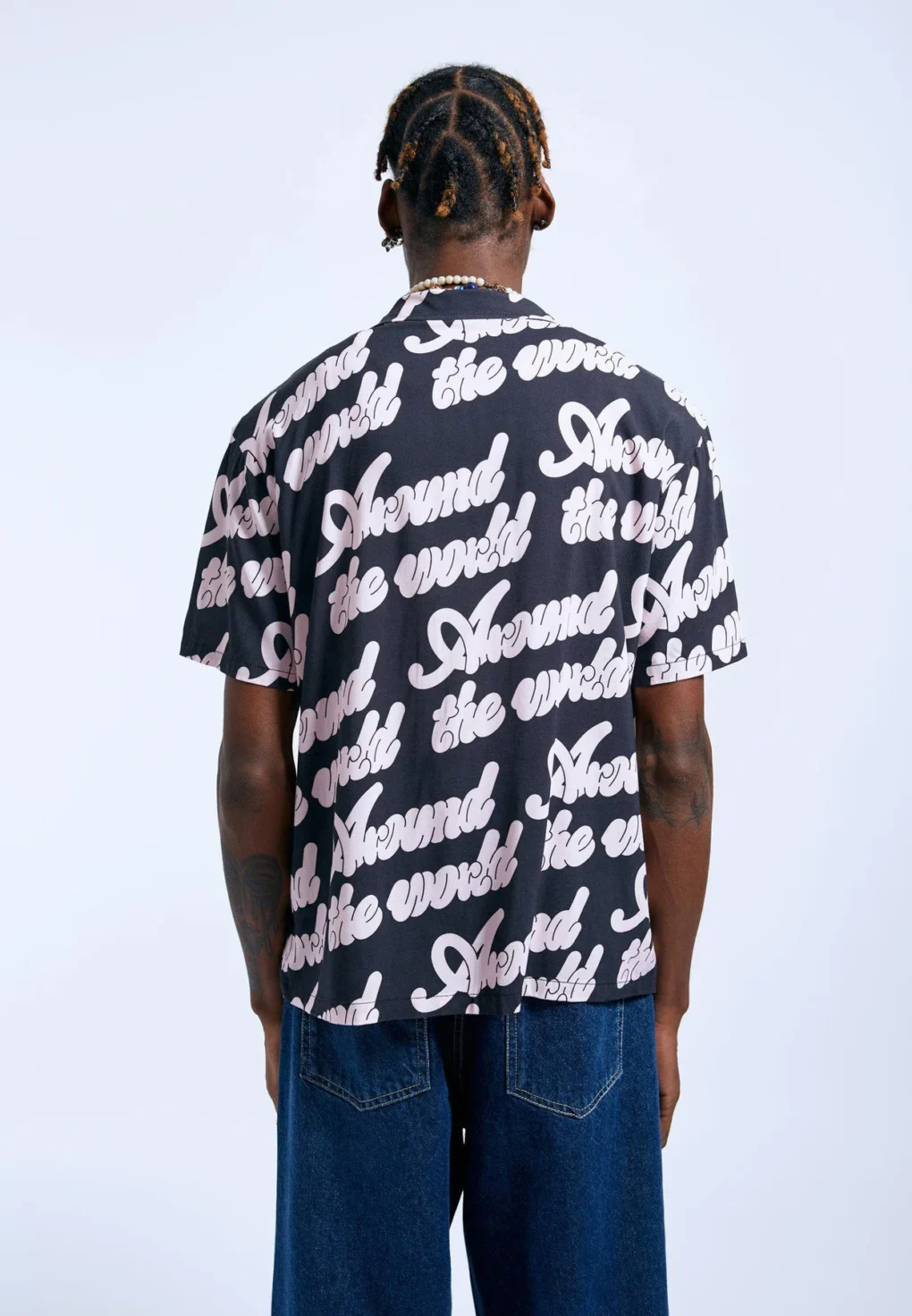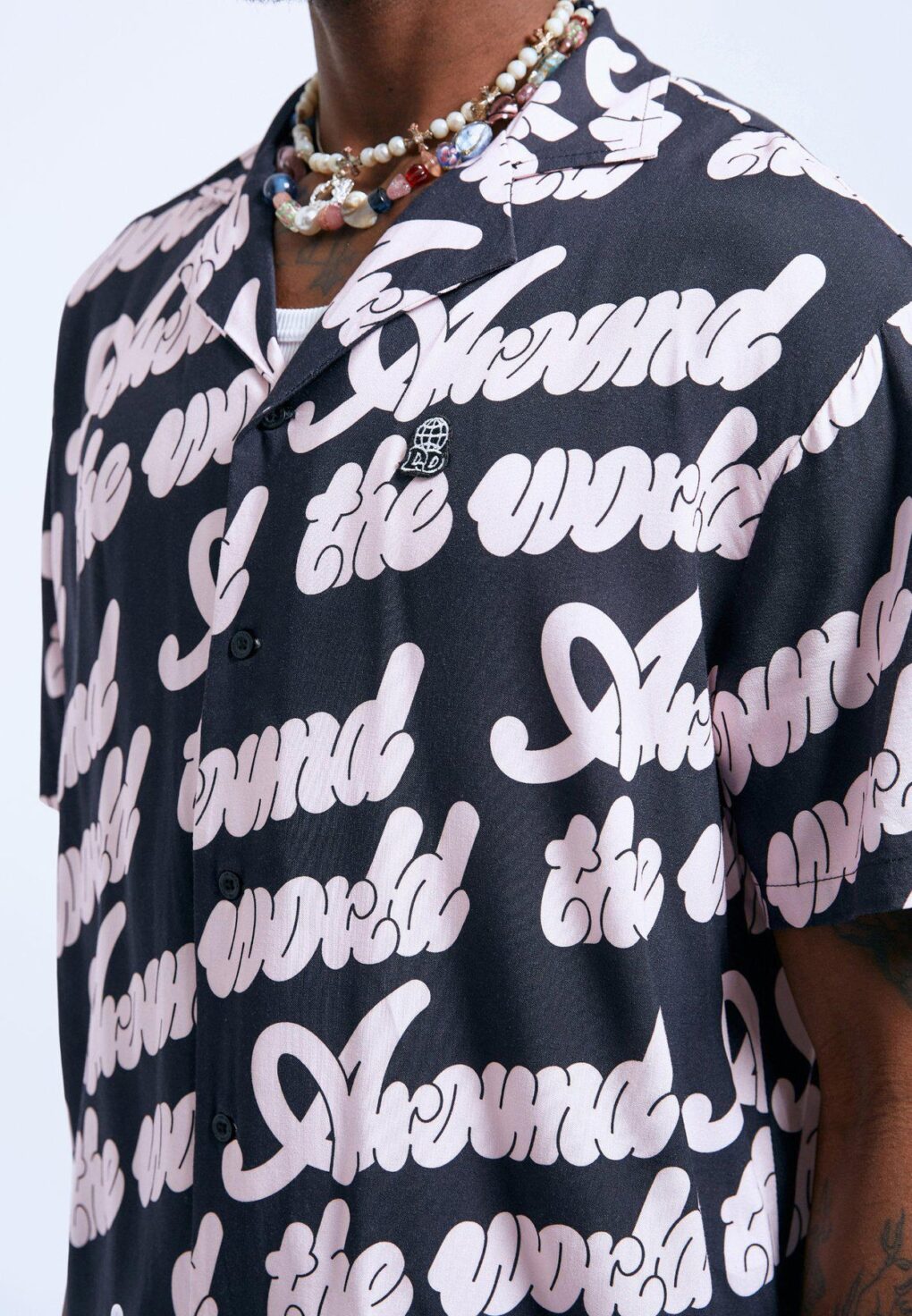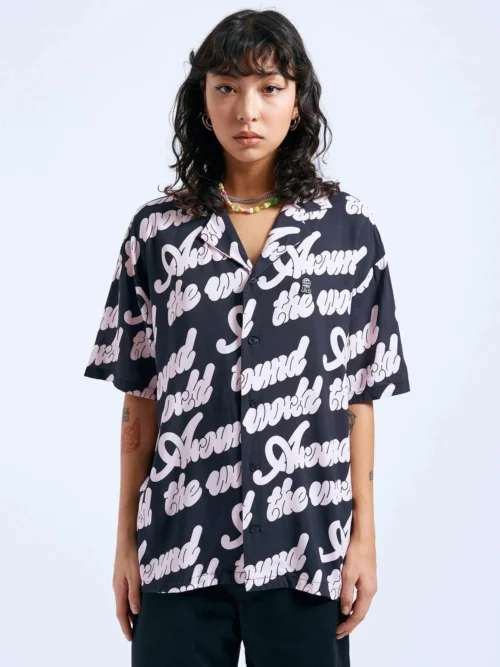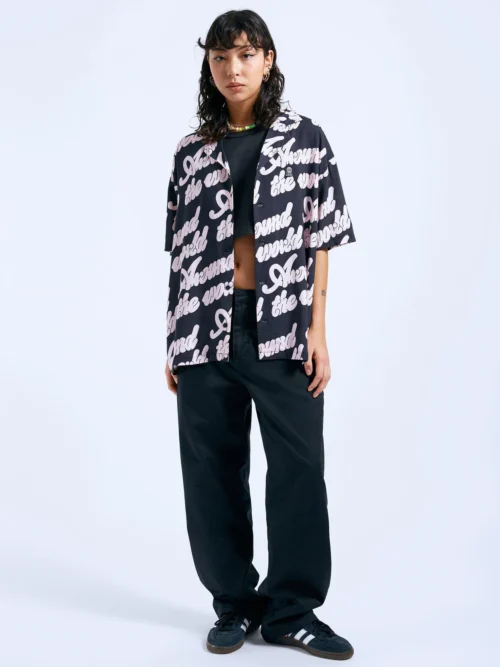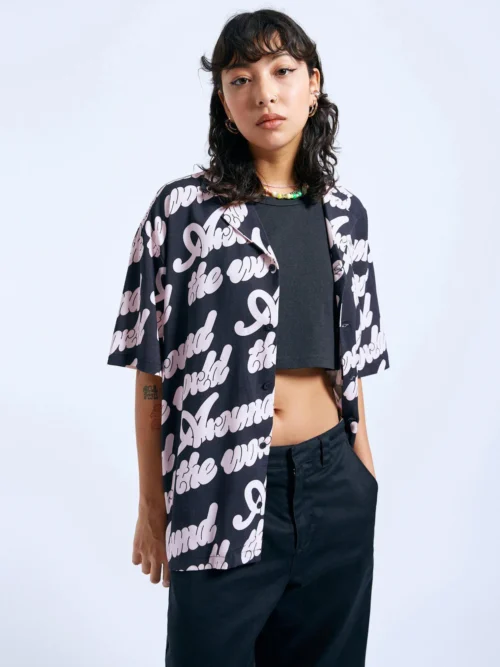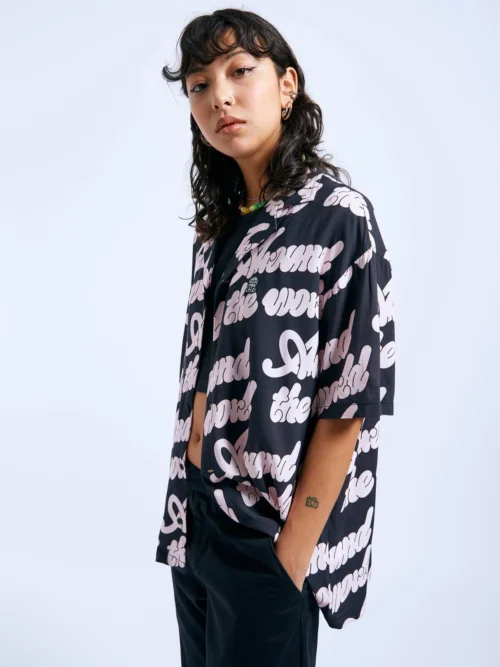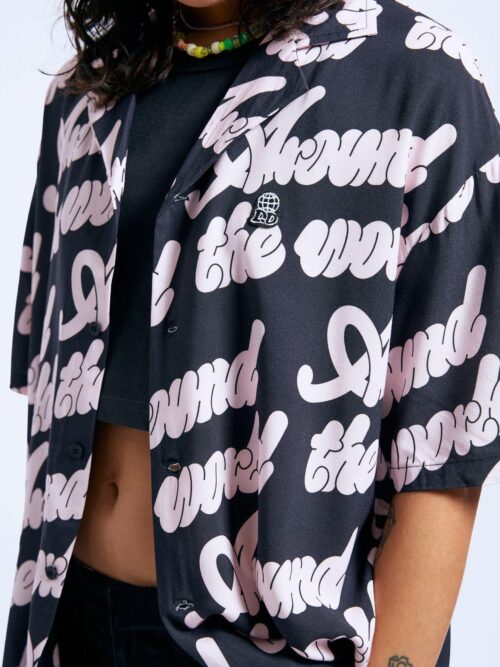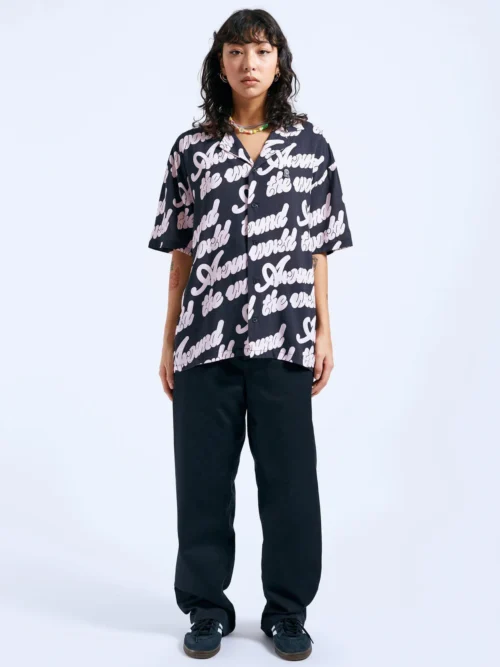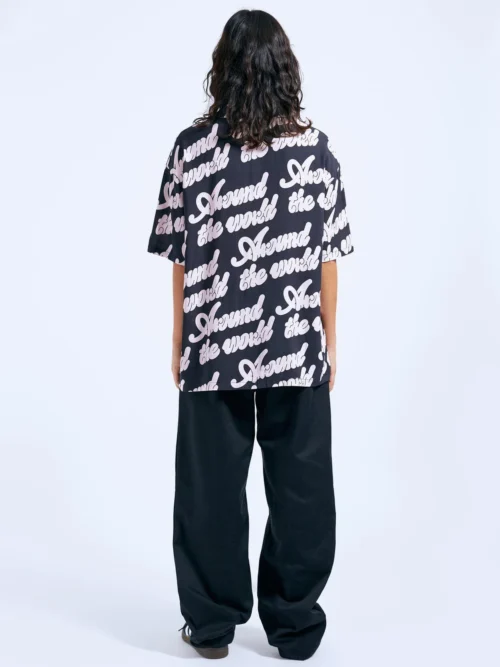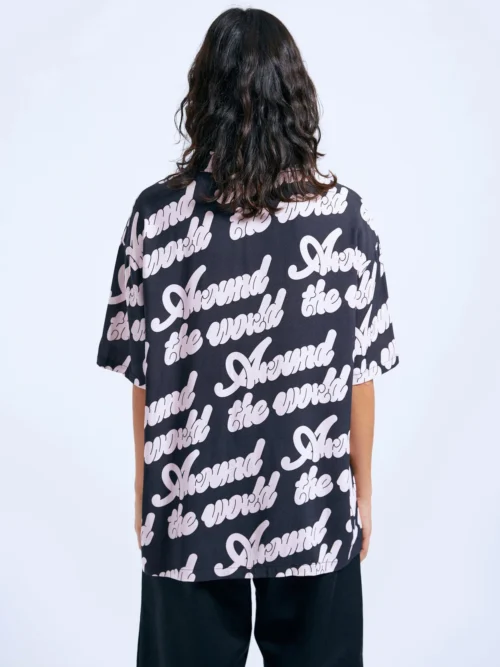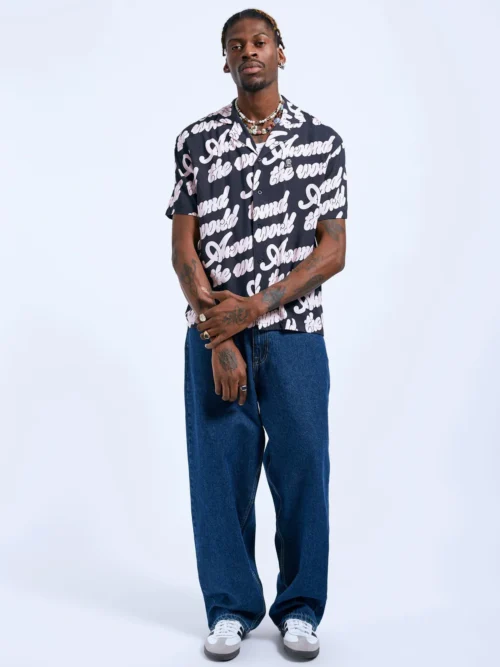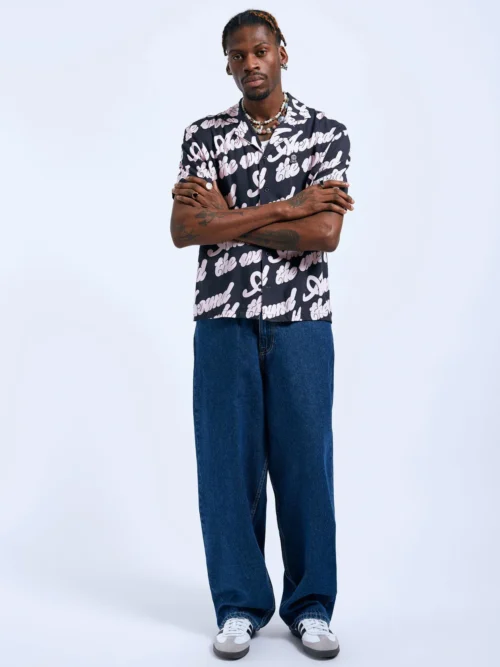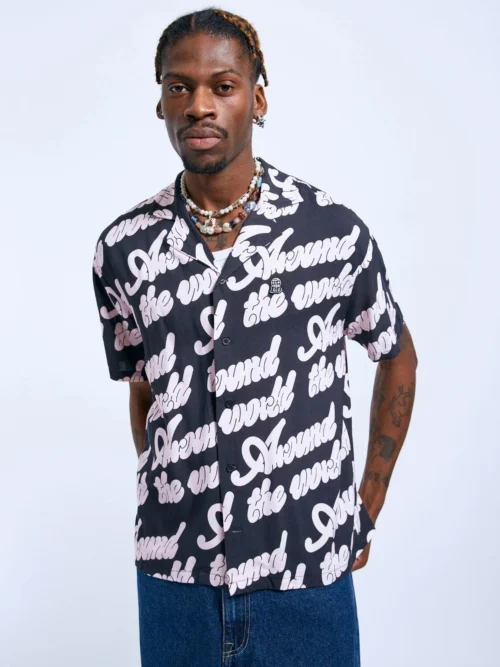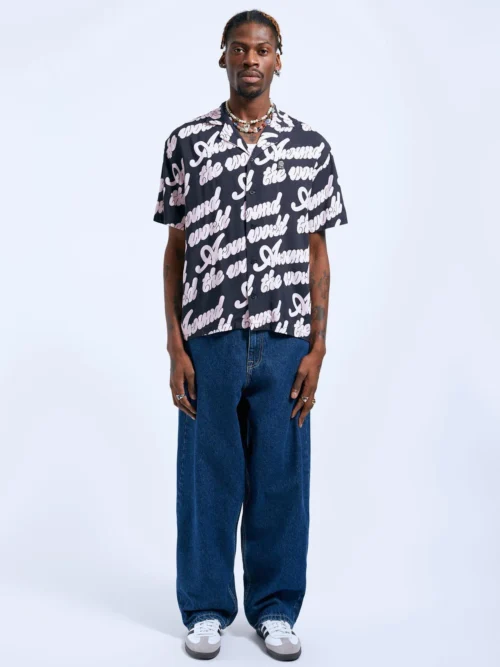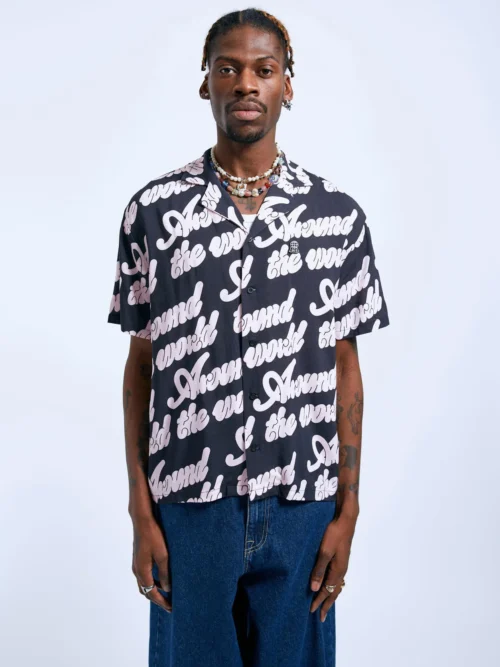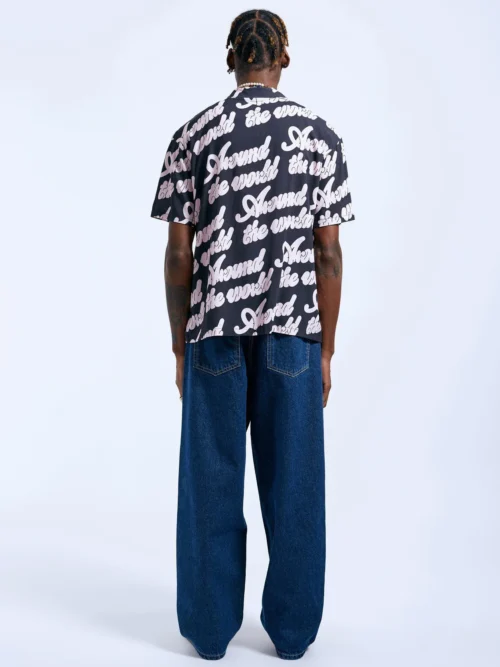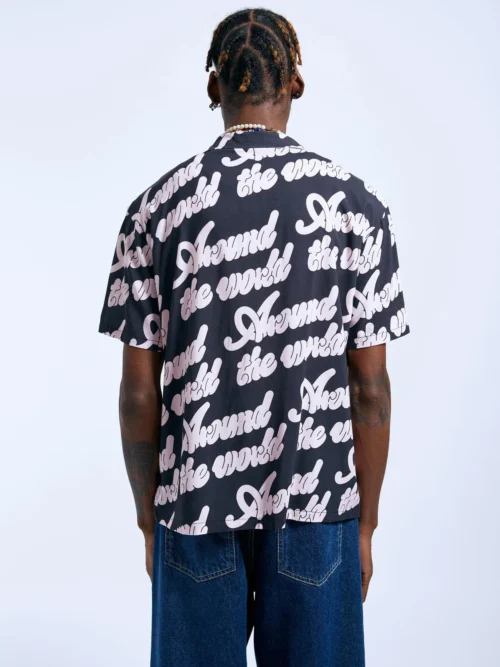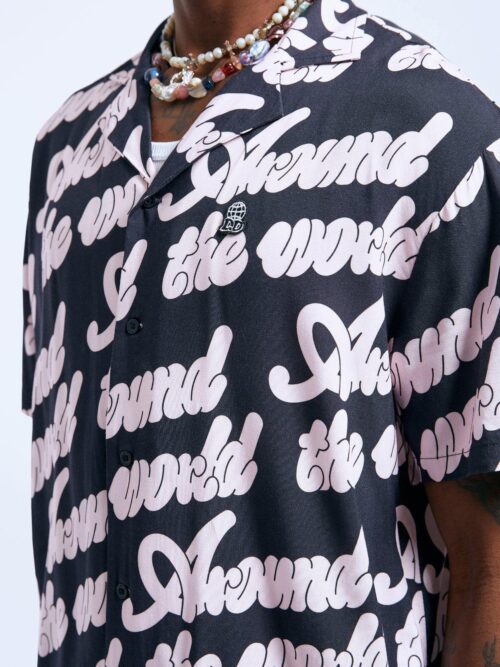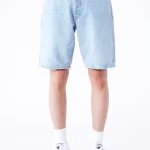Περιγραφή
DrDenim Madi Shirt – Off Black Around AOP
DrDenim Madi Shirt από 100% βισκόζη είναι μια εξαιρετικά άνετη και ευέλικτη επιλογή για κάθε στυλ και περίσταση. Η βισκόζη είναι ένας τύπος τεχνητού υφάσματος που προέρχεται από φυσικές πηγές όπως τον ξύλινο μανιτάρι και το βαμβάκι. Αυτό το υλικό προσφέρει μια μαλακή αίσθηση στο δέρμα και εξαιρετική αναπνευστικότητα, κάνοντας το ιδανικό για τις ζεστές μέρες του καλοκαιριού.
Το κοντομάνικο σχέδιο του πουκαμίσου προσφέρει μια δροσερή και ελαφριά αίσθηση κατά τη διάρκεια των ζεστών ημερών. Η unisex γραμμή του σημαίνει ότι είναι σχεδιασμένο για να ταιριάζει εξίσου καλά και σε άντρες και σε γυναίκες, προσφέροντας ένα στυλ που είναι ταυτόχρονα μοντέρνο και πρακτικό.
Το υλικό βισκόζης είναι επίσης εύκολο στη φροντίδα, καθώς πλένεται εύκολα και στεγνώνει γρήγορα, κάνοντας το ιδανικό για καθημερινή χρήση. Από την πόλη έως την παραλία, αυτό το unisex κοντομάνικο πουκάμισο από βισκόζη θα προσθέσει άνεση, στυλ και ευελιξία σε κάθε ντύσιμο.
- Χαλαρή εφαρμογή
- Γιακάς θερέτρου
- Κλείσιμο με κουμπί
- 100% βισκόζη
Εταιρία
DrDenim
About Environmental Impact
PRINCIPLES
Dr. Denim thinks the best way to approach environmental impact is to use science-based targets and measure based on the best available data according to the principles below:
1: “Long life” We should talk more about how important it is to make products that last a long time, that you can give to a friend or sell them instead of throwing them in a landfill. No fast fashion here.
2: “Volume over greenwashing” The most important thing when it comes to sustainability isn’t showing as many pieces with various tags with various claims as possible – it’s making sure as much volume as possible has been reviewed and assessed from an impact perspective.
That’s why we emphasize building sustainability into our high volume, multi-season items above all without altering our price points. Don’t worry – we’re obviously working on the entire range, but we’ll always be scientific about our priori- ties..
Currently, our greatest efforts go into issues related to waste generation and into the procurement of the fabrics that comprise the greatest mass-volume that we put onto the market. Very kaizen.
PUBLIC ENVIRONMENTAL RISK POLICY AND STATEMENT
In addition to this document regarding environmental impact, goals and principles, there is a public environmental risk policy and statement.
Available here
GOALS
To reduce our Scope 1 and 2 GHG emissions by 15%, in proportion to mass-volume, by 2031 based on base year 2023.
To annually maintain our previous goal (achieved) from 2022 of using a proportion of at least 80% of woven fabrics by mills certified by OEKO-TEX®. In this case, we are not measuring mass, but the number of fabrics, due to the way the product design process works. All main fabrics considered for a new collection are required to be compliant with this goal, and the resulting allowance of 20% exists to give new (so-called infants) suppliers the chance to get in the know, gather documentation and to become compliant, in line with principles on development supported by both Worldly® BRM® and Amfori®.
Thirdly, we have a qualitative goal, which is to strike the perfect balance between longevity and e.g. recycled cotton. Recycled cotton gets chopped up into smaller pieces during the recycling process and thus generally has a lower durability than virgin cotton of the same pre-recycling staple length, all other things being equal. Therefore, unless quality and product longevity are considered, an excessively high recycled content could have a negative impact on waste generation during the jeans’ lifecycle.
HOW?
There's a lot to love about cotton. It has great properties, cotton fields are pretty and, of course, cotton is what jeans are generally made of.
We source the best cotton we can. Sometimes we work with pure virgin cotton, other times we work with blended recycled cotton – either based on post-consumer recycling or post-industrial recycling. Regardless, recycled cotton gets certified by a third party to the extent it is used, which is a percentage and in accordance with the appropriate standard. Please see this link to Control Union for further information on their textile standards.
A tag indicating an effort to reduce the environmental impact of a fabric used to make a specific product is affixed to all garments made from such fabric and there’s a brief note on the care label as well.
Dr. Denim is a member of the Swedish chemical’s group (Kemikaliegruppen). we use Kemikaliegruppen's chemicals guideline as a basis for our our chemical policy which makes our policy stricter than both the EU directive 1907/2006 “REACH” and California Prop. 65.
Sometimes we use lyocell, Tencel®, modal and polyester and mix these with cotton to make garments more durable or to gain a lower HIGG MSI score. The HIGG Materials Sustainability Index is an index that rates the footprint of the material. You can read more about it and other data sources on Cascale’s website. Interestingly, when comparing materials, the resulting footprints may be different from what you'd expect.
TRIMS
Dr. Denim’s woven logo labels, metal buttons on jeans and metal rivets are mainly made by https://rudholmgroup.com/we-care/
ANIMALS
Dr. Denim does not use any of the following materials for reasons relating to animal welfare:
- Feathers and down
- Bone, horn and shell
- Angora wool
- Fur
- Leather (since 2019)
- Silk
TRANSPORTATION
ENVIRONMENTAL IMPACT - TRANSPORTATION
At Dr. Denim we believe it's important to address the total impact on human health and the planet based on data.
MODE OF TRANSPORTATION
The table below shows that from an emissions perspective, sea freight is by far the least harmful mode of transport, and it is the primary mode of transport we use at Dr. Denim.
By shipping full containers on large bulk container ships, the environmental impact of transporting one pair of Dr. Denim jeans is minimized compared with small scale transport.
A small share of the Dr. Denim volume is transported by truck, from Turkey to Sweden.
It does happen that air freight becomes necessary. We do everything we can to minimize this.
It's not as simple as saying that local made is better. Sea freight from Asia to Europe scores pretty well in terms of atmospheric pollutants if you compare to truck from countries closer by.
 Source: OECD –The Environmental Effects of Freight –Table 18
http://www.oecd.org/environment/envtrade/2386636.pdf
PLASTIC BAGS
Dr. Denim strives to minimize the use of packaging material wherever possible, but there is a sweet spot between reducing packaging material and the quantity of damaged goods. The environmental consequence of a damaged product is greater than the addition of a plastic bag that is recycled.
Dr. Denim uses low-density polythene plastic bags and with recycling symbol PE-LD and which are BHT-free as well as free of polyvinylchloride to protect products during transportation.
These polybags are biodegradable, but it takes time. Therefore, they should never be littered openly. Please always dispose of plastic in appropriate recycling bins. Compostable bags currently decompose too quickly – even before the product may be sold, which spoils the product. Therefore, it's currently not viable for us to change into such plastic bags, because the footprint of spoiled garments is worse using a low-density polythene bag and recycling the bag after use.
Dr. Denim uses acrylic based low-density polyethylene tape to seal cartons.
Cartons used for inbound shipping are re-used for export purposes to further minimize the use of packaging material.
Source: OECD –The Environmental Effects of Freight –Table 18
http://www.oecd.org/environment/envtrade/2386636.pdf
PLASTIC BAGS
Dr. Denim strives to minimize the use of packaging material wherever possible, but there is a sweet spot between reducing packaging material and the quantity of damaged goods. The environmental consequence of a damaged product is greater than the addition of a plastic bag that is recycled.
Dr. Denim uses low-density polythene plastic bags and with recycling symbol PE-LD and which are BHT-free as well as free of polyvinylchloride to protect products during transportation.
These polybags are biodegradable, but it takes time. Therefore, they should never be littered openly. Please always dispose of plastic in appropriate recycling bins. Compostable bags currently decompose too quickly – even before the product may be sold, which spoils the product. Therefore, it's currently not viable for us to change into such plastic bags, because the footprint of spoiled garments is worse using a low-density polythene bag and recycling the bag after use.
Dr. Denim uses acrylic based low-density polyethylene tape to seal cartons.
Cartons used for inbound shipping are re-used for export purposes to further minimize the use of packaging material.
PEOPLE
Dr. Denim is a member of Amfori. As members of Amfori, we adopt Amfori's standard code of conduct. Amfori is a system for implementing and following up adherence to Amfori's standard code of conduct in manufacturing. The latest version of the code of conduct: https://www.amfori.org/content/bsci-code-conduct
Amfori and its participants pursue a dialogue among business partnersand stakeholders to reinforce the principles of socially responsible business.
The Amfori (BSCI) Code of conduct refers to international conventions such as the Universal Declaration of Human Rights, the Children’s Rights and Business Principles, UN Guiding Principles for Business and Human Rights, OECD Guidelines, UN Global Compact and International Labour Organization (ILO) Conventions and Recommendations relevant to improve working conditions in the supply chain.

Dr. Denim is your family, your friend, your every day companion. Someone you can turn to in every situation. Just like a perfect pair of jeans. Dr. Denim creates affordable staples to live your life in, Dr. Denim is always there with you. Every day is a denim day.
 Dr. Denim is a jeansmaker from Sweden who made it into a personal quest to be the global cure for half-baked denim. Since 2004, we supply great jeans that everyone can afford by being ingenious in an over-priced and somewhat boring denim industry.
The two founding brothers of Dr. Denim, Alexander and Johannes, share an MA degree in economics & management at Oxford University, their extreme attention to detail and their never ending obsession with denim.
The passion for denim was naturally inherited from their father Morten who's been a key player in the European denim industry since the late '70s. He brought stonewashed denim to Europe, as well as the Japanese brand Edwin Jeans, and then introduced the Scandinavians to G-Star Raw. All while operating his own garment and production agency.
Ever since Dr. Denim's launch the Graah family have had full ownership of the company, they helm the brand's creative expression, the product development and they set the strategic direction with full force into a new digital decade of delivering great jeans experiences.
Dr. Denim is a jeansmaker from Sweden who made it into a personal quest to be the global cure for half-baked denim. Since 2004, we supply great jeans that everyone can afford by being ingenious in an over-priced and somewhat boring denim industry.
The two founding brothers of Dr. Denim, Alexander and Johannes, share an MA degree in economics & management at Oxford University, their extreme attention to detail and their never ending obsession with denim.
The passion for denim was naturally inherited from their father Morten who's been a key player in the European denim industry since the late '70s. He brought stonewashed denim to Europe, as well as the Japanese brand Edwin Jeans, and then introduced the Scandinavians to G-Star Raw. All while operating his own garment and production agency.
Ever since Dr. Denim's launch the Graah family have had full ownership of the company, they helm the brand's creative expression, the product development and they set the strategic direction with full force into a new digital decade of delivering great jeans experiences.
 Source: OECD –The Environmental Effects of Freight –Table 18
http://www.oecd.org/environment/envtrade/2386636.pdf
PLASTIC BAGS
Dr. Denim strives to minimize the use of packaging material wherever possible, but there is a sweet spot between reducing packaging material and the quantity of damaged goods. The environmental consequence of a damaged product is greater than the addition of a plastic bag that is recycled.
Dr. Denim uses low-density polythene plastic bags and with recycling symbol PE-LD and which are BHT-free as well as free of polyvinylchloride to protect products during transportation.
These polybags are biodegradable, but it takes time. Therefore, they should never be littered openly. Please always dispose of plastic in appropriate recycling bins. Compostable bags currently decompose too quickly – even before the product may be sold, which spoils the product. Therefore, it's currently not viable for us to change into such plastic bags, because the footprint of spoiled garments is worse using a low-density polythene bag and recycling the bag after use.
Dr. Denim uses acrylic based low-density polyethylene tape to seal cartons.
Cartons used for inbound shipping are re-used for export purposes to further minimize the use of packaging material.
Source: OECD –The Environmental Effects of Freight –Table 18
http://www.oecd.org/environment/envtrade/2386636.pdf
PLASTIC BAGS
Dr. Denim strives to minimize the use of packaging material wherever possible, but there is a sweet spot between reducing packaging material and the quantity of damaged goods. The environmental consequence of a damaged product is greater than the addition of a plastic bag that is recycled.
Dr. Denim uses low-density polythene plastic bags and with recycling symbol PE-LD and which are BHT-free as well as free of polyvinylchloride to protect products during transportation.
These polybags are biodegradable, but it takes time. Therefore, they should never be littered openly. Please always dispose of plastic in appropriate recycling bins. Compostable bags currently decompose too quickly – even before the product may be sold, which spoils the product. Therefore, it's currently not viable for us to change into such plastic bags, because the footprint of spoiled garments is worse using a low-density polythene bag and recycling the bag after use.
Dr. Denim uses acrylic based low-density polyethylene tape to seal cartons.
Cartons used for inbound shipping are re-used for export purposes to further minimize the use of packaging material.



